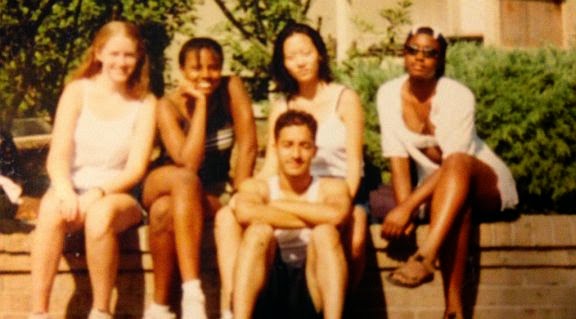It's Thursday, and while for many that means that it's one day closer to the weekend. However, for a million or so people around the world, it means something totally different: Serial day.
Podcasting has taken off in a big way since it first became a thing back in the 2000s, but few, if any, have been such universal hits that it's something that you talk about with your friends at the watercooler on a weekly basis.
Like a TV show, Serial is released on a week by week basis, telling one long story over the space of several episodes. We don't know how many episodes there will be in the end because it turns out that host and producer Sarah Koenig doesn't know either, as she stated in a recent interview on The Gist podcast. Yes, we're listening to a podcast about this podcast; that's how good it is.
Perhaps that's where the selling point is: it gives us something that other podcasts don't - instead of wrapping everything up by the end of the show or focusing on an extremely niche topic, we want to know more and have to wait for that until the following week, which, in the age of streaming and boxsets, is something we're no longer used to. People hang around with baited breath for that next episode to go live every Thursday, and many re-listen to old shows in the interim, or head to the reddit page where they can discuss their theories about the show (spoilers ahoy if you click that link). Some even have listening parties and gather round the computer to listen, as if they'd been transported back in time and were tuning in to the most popular radio shows of the day. It is, without any exaggeration, a cultural phenomenon at the moment, and if you're not listening, you ought to be. There are even YouTube parodies.
Lots of parodies.
The story that Koenig tells is one of murder, mystery and intrigue, that's hardly groundbreaking for fiction. But this is non-fiction, something that works with the medium of the podcast quite well. Serial investigates the murder of Hae Min Lee in 1999, for which her ex-boyfriend Adnan Syed was convicted. He has been in prison ever since, but Koenig is not so sure that they have the right man, or at least there's enough there to make her doubt, so she goes about explaining the different sides of the case.

Pic via Critics at Large
Every week, a different twist is brought to the show, and we take the journey with Koenig rather than simply passively listening. She talks out her doubts on air in a natural and conversational manner that invites you to think about the case as a whole, how a certain piece fits in to a certain gap, whether we can really trust the evidence or the people telling it to us.
Perhaps it's the fact that Koenig is not a professional detective (she is an investigative reporter) so she processes the information much in the same way that we would when confronted by it - we question it, we have theories, and we make assumptions. She tells us all of these things, her doubts and her certainties, and we have them too. While she can dig deeper than us and can commit to it, we still get the feeling that she is, like us, just looking for the case to break, for the next piece of information that will give us something else to work off of.
The story itself, as she describes, is almost Shakespearean too, and because we are looking at it 15 years down the line, there are hazy memories that obscure the facts and make it more difficult to work through. Here is not the place for a review, or plot spoilers, but suffice to say it's an audio 'whodunnit?' that has drawn fair comparisons to True Detective, mainly because of the narrative structure. We are presented it as a story, as sources recalling what information they have about the case and it makes it all the more compelling as a result. Somewhere in there is the truth, but we don't know where yet.
There are many reasons why we're addicted that are no mystery: we want a resolution, we like stories to have an ending, did this charming, likable guy called Adnan really do it? All relevant, but the main reason we're addicted is the mystery itself. Koenig weaves it with the expert precision of a seasoned storyteller, and that itself is an art that has captivated us as a species throughout our entire history. Importantly, it also brings people together in an age where our personal devices and social media are really isolating us without us realising it. People want to talk about Serial because people want to talk to each other, we just need a conversation worth having.
Read enough and want to get started? Then tune in below, but be prepared to do some serious binge listening in the next few hours/days.








































































